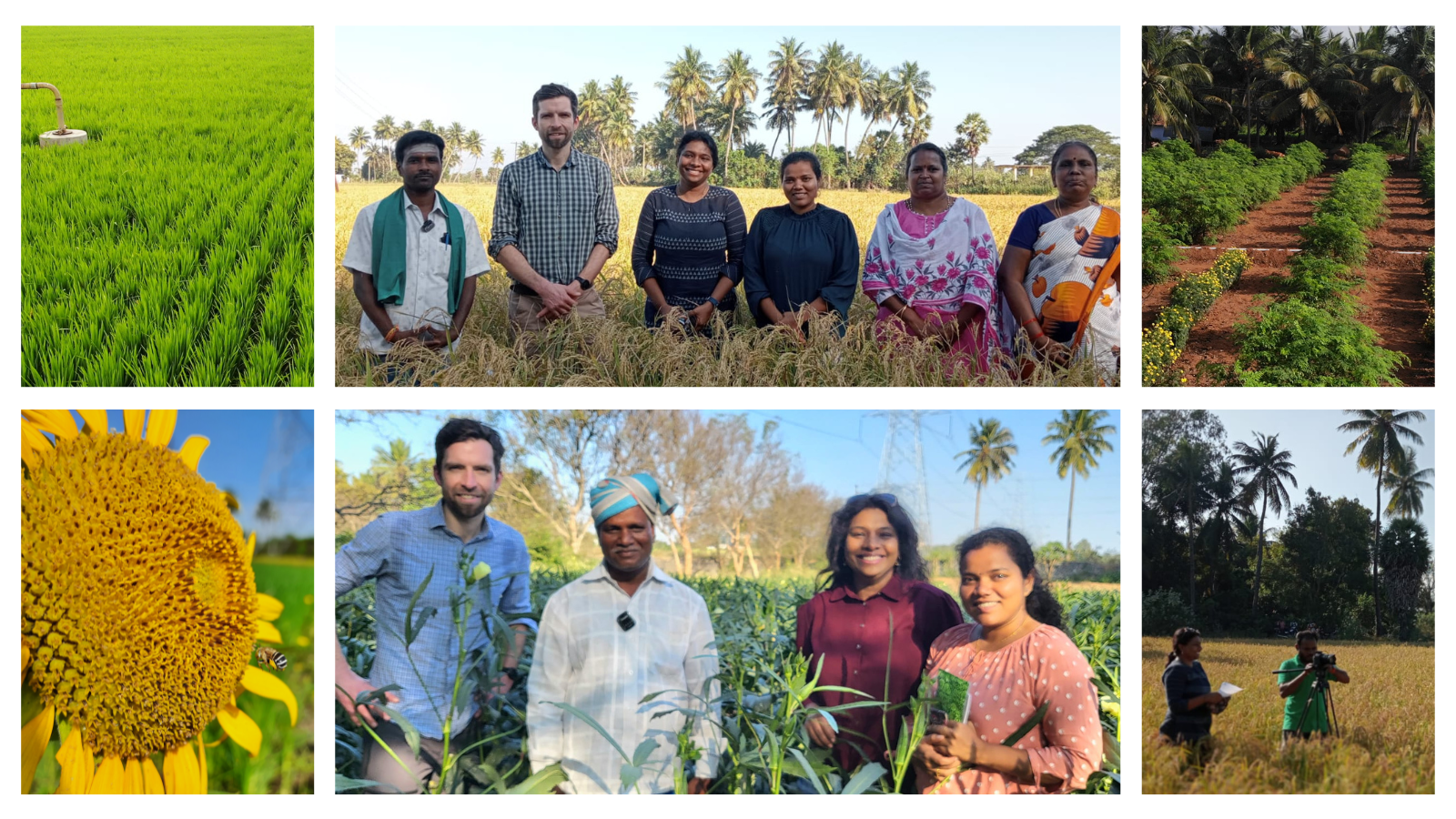Planting insect-friendly flowers alongside crops is helping smallholder farmers in India improve fruit and vegetable yields while using fewer damaging agrochemicals, thanks to research co-developed by Reading ecologists, alongside Indian researchers and smallholder farmers. This win-win approach for both nature and sustainable food production is changing local practices, and informing national and international policy on biodiversity.
Around 40% of India’s population works in farming. Many smallholders rely on using unsustainable and costly fertilisers and pesticides to eke out a living. But this degrades the environment and harms biodiversity.
Reading ecologists Dr Deepa Senapathi and Dr Mike Garratt worked closely with the M S Swaminathan Research Foundation and 64 smallholder farmers in Tamil Nadu, India to co-design and test solutions to show that planting insect-friendly flowers in orchards and fields boosts the numbers of beneficial insects that contribute to pollination and pest regulation in crops and reduces agrochemical use.
From marigolds sown in okra crops, to sesame blooms among mango orchards, the flowers chosen, with help from the farmers, are home to beneficial insects like bees and other insect pollinators as well as spiders and ladybirds which prey on crop pests such as stem borers and other caterpillars.
News of the project’s success spread through farming networks and village knowledge centres. More than 40 Tamil Nadu farmers have since followed suit, reaping the rewards of the partners’ so-called ‘ecological intensification’ approach.
Senapathi and team are raising awareness through a local language farmers’ handbook and pollinator wall calendars. Their short films aimed at policy-makers and farmers are pushing the findings to a national level. Working with collaborators at the Food and Agriculture Organization of the United Nations and Promote Pollinators, the films will inform policy briefs for the UN Convention on Biological Diversity, bringing flower-powered farming to international attention.
“We sowed sesame this year and it flowered successfully. This then led to higher fruit set and greater yield in mangoes. We had income from both the sesame and mango crops, so it was a double benefit for us.” — Jayaraj, mango farmer
Team: Deepa Senapathi and Mike Garratt
Partners
- M S Swaminathan Research Foundation
Funders
- Global Challenges Research Fund (GCRF)
- University of Reading

